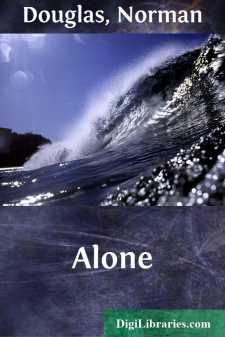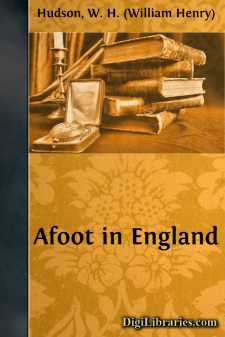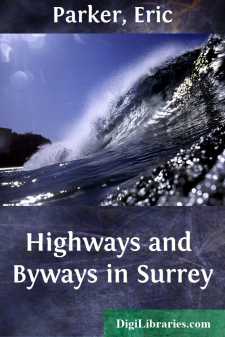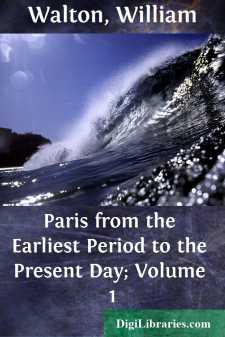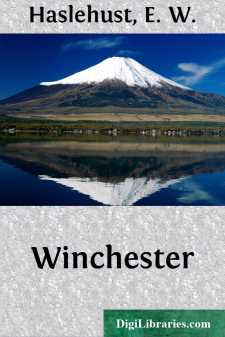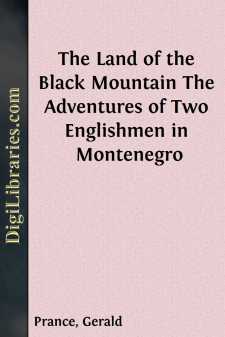Travel
- Africa 29
- Alaska 3
- Asia 46
- Australia & Oceania 26
- Canada 31
- Caribbean & West Indies 5
- Central America 1
- Europe
- General 39
- Maps & Road Atlases 1
- Mexico 10
- Middle East 18
- Polar Regions 7
- Reference 11
- Restaurants 1
- Russia 6
- South America 16
- United States 71
Europe Books
Sort by:
CHAPTER I Refers in a general way to several great and historic cities of this earth. Indicates the routes by which Prague may be reached by the traveller from the West, tells a wayside story or two and mentions several very great people, also others of a less degree. Digresses seriously from the purpose of the whole book by raking up the author's personal recollections of people that lived and...
more...
by:
Norman Douglas
Introduction What ages ago it seems, that "Great War"! And what enthusiasts we were! What visionaries, to imagine that in such an hour of emergency a man might discover himself to be fitted for some work of national utility without that preliminary wire-pulling which was essential in humdrum times of peace! How we lingered in long queues, and stamped up and down, and sat about crowded, stuffy...
more...
by:
Mark Twain
When I last made a memorandum, we were at Ephesus. We are in Syria, now, encamped in the mountains of Lebanon. The interregnum has been long, both as to time and distance. We brought not a relic from Ephesus! After gathering up fragments of sculptured marbles and breaking ornaments from the interior work of the Mosques; and after bringing them at a cost of infinite trouble and fatigue, five miles on...
more...
Chapter One: Guide-Books: An Introduction Guide-books are so many that it seems probable we have more than any other country—possibly more than all the rest of the universe together. Every county has a little library of its own—guides to its towns, churches, abbeys, castles, rivers, mountains; finally, to the county as a whole. They are of all prices and all sizes, from the diminutive paper-covered...
more...
by:
Eric Parker
CHAPTER I THE PILGRIMS' WAY The Pageant of the Road.—Canterbury Pilgrims.—Henry II. barefoot.—Choosing the Road.—Wind on the Hill.—Wine in the Valley.—Pilgrim's Progress.—Shalford Fair.—A doubtful Mile.—Trespassers will be Prosecuted.—With Chaucer from the Tabard. East and west through the county of Surrey runs the chalk ridge of the North Downs, the great highway of...
more...
by:
William Walton
F the capital of the French nation, situated on the river Seine, were simply the most beautiful, the wittiest, wickedest, and most artistic of towns, if—as has been so often asserted (and not exclusively by the citizens thereof)—the most commonplace and the most brilliant of human manifestations alike take on new qualities, texture, and interest the moment they become Parisien, then, indeed, would...
more...
by:
James Boswell
PREFACE. Boswell did not bring out his "Life of Johnson" till he was past his fiftieth year. His "Journal of a Tour to the Hebrides" had appeared more than five years earlier. While it is on these two books that his fame rests, yet to the men of his generation he was chiefly known for his work on Corsica and for his friendship with Paoli. His admiration for Johnson he had certainly...
more...
by:
E. W. Haslehust
WINCHESTER Few of our English cities are more strikingly situated than the once royal city of Winchester, which lies on the slopes and along the bed of a chalk valley watered by the River Itchen. The greater part of the present city is situated on the right bank of the river, while the best general view of it is justly considered to be that obtained by looking across the Vale of Chilcomb, from the road...
more...
by:
George Brannon
EXPLANATION. If nearly Forty Years' Residence in the Isle of Wight may be allowed in some degree to qualify an Artist for the office of Guide, the Author has a fair claim to public patronage,—for few could have had better opportunity of acquiring local information. He has endeavoured to render The Picture an intelligent Cicerone, without being too garrulous or grandiloquous,—but always...
more...
by:
Gerald Prance
CHAPTER I Montenegro's geographical position—Character of the people—Their honesty, patriotism, and love of arms—Likeness to the Homeric Greeks—The women—Montenegrin manners, vices, heroism, lack of privacy, police—Goodness of the Prince—The national costume—Religion—Hatred of Austria—Russia's friendship. Roughly Montenegro is diamond-shaped, with its points towards north...
more...



